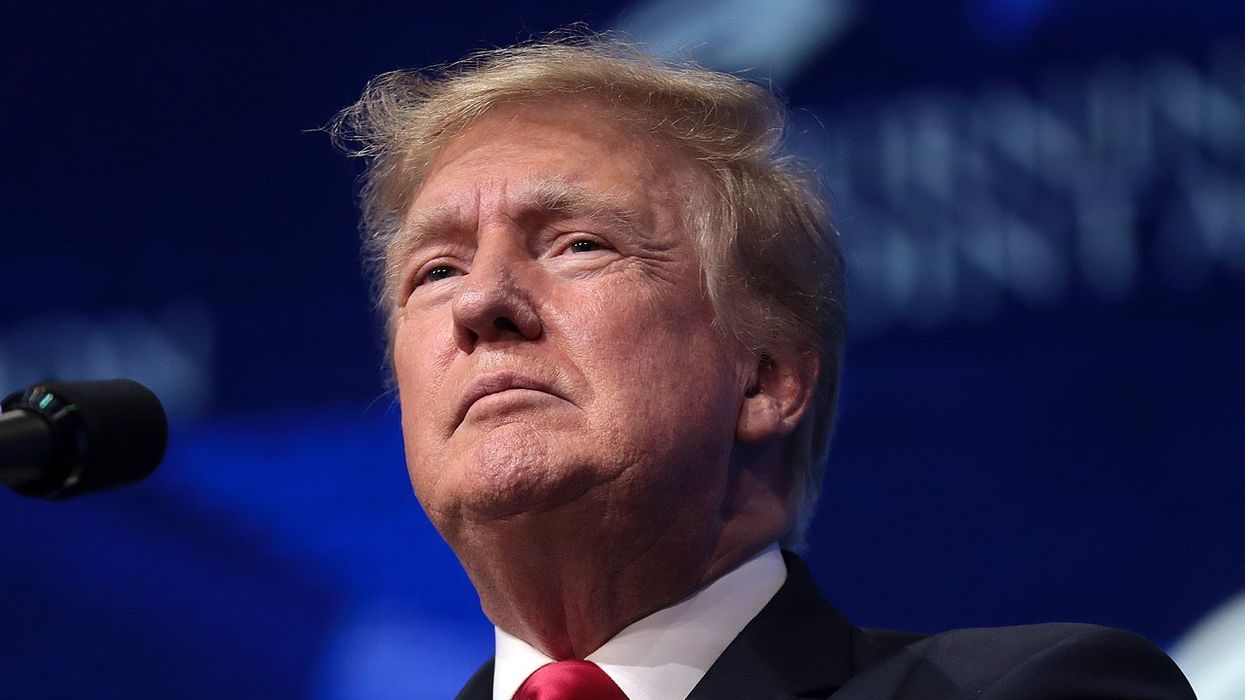Legal expert shoots down 'bizarre' argument for keeping Trump on Colorado ballot

Former President Donald Trump in Phoenix in July 2021 (Gage Skidmore)
February 15, 2024 | 02:24PM ETBank
Justices for the U.S. Supreme Court, including Barack Obama appointee Elena Kagan, appeared to be extremely skeptical when hearing oral arguments in favor of a ruling by the Colorado Supreme Court that removes former President Donald Trump from the state's election ballot.
According to the Colorado decision, Trump is ineligible for the ballot based on Section 3 of the U.S. Constitution's 14th Amendment — which states that an "officer" who has engaged in "insurrection" is disqualified from certain government positions. But it remains to be seen if the High Court, in Trump v. Anderson, will uphold or strike down the Colorado Supreme Court ruling.
One of the defenses that Trump's supporters are using is that a president is an "officer" as defined by the 14th Amendment. But University of Maryland law professor Mark A. Graber strongly disagrees with that argument in an article published by The Atlantic on February 15.
READ MORE: Jack Smith rebuts Trump’s efforts to further delay trial in new SCOTUS request: report
"This effort to avoid the designation 'officer of the United States' smacks of a conclusion in want of a rationale," Graber argues. "Neither Trump nor his defenders have found a single quotation from the 1860s declaring that the president is not an officer of the United States for purposes of Section 3. Proponents of disqualification, by comparison, have unearthed numerous assertions that Section 3 was meant to encompass all offices and all officeholders."
Graber adds, "Neither Trump nor his defenders have explained why the Constitution would permit a president who encouraged an attack on Congress to hold all offices in every state and the national government while disqualifying from every office a dogcatcher who was a foot soldier in an insurrection. Nevertheless, this position has gained a bizarre amount of scholarly support among so-called originalists and textualists, and some justices may now be leaning toward this view."
The law professor notes that when the 14th Amendment was added to the U.S. Constitution in 1866, Democrat Andrew Johnson was president — and he often described himself as "the chief civil executive officer of the United States."
"In a constitutional regime," Graber explains, "all persons who exercise government power are officers; as such, their authority is prescribed by law, and they are accountable to law. The Preamble to the Constitution of the United States recognizes that the people are sovereign in the United States. No person with governing responsibilities is above the law. The legal authority that all officers exercise is ultimately grounded in the Constitution and laws of the United States, not in the sovereign president, sovereign Congress, or sovereign Supreme Court."
READ MORE: Legal expert makes conservative 'originalist' case against 'insurrectionist' Trump
Graber continues, "No one in the United States is an 'officer of the president' or an 'officer of Congress' or an 'officer of the Supreme Court.' Americans from the very beginning recognized that presidents in a regime in which the people were sovereign were officers of the United States."
READ MORE: 'Getting ugly': Ex-federal prosecutor urges Fani Willis to 'disqualify' herself from Trump case
Mark A. Graber's full article for The Atlantic is available at this link (subscription required).